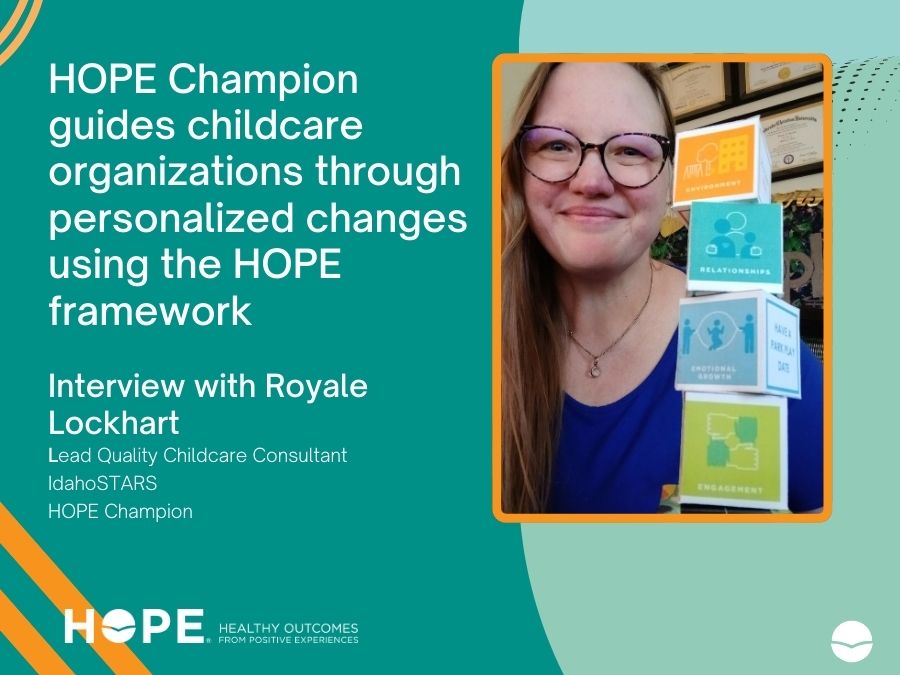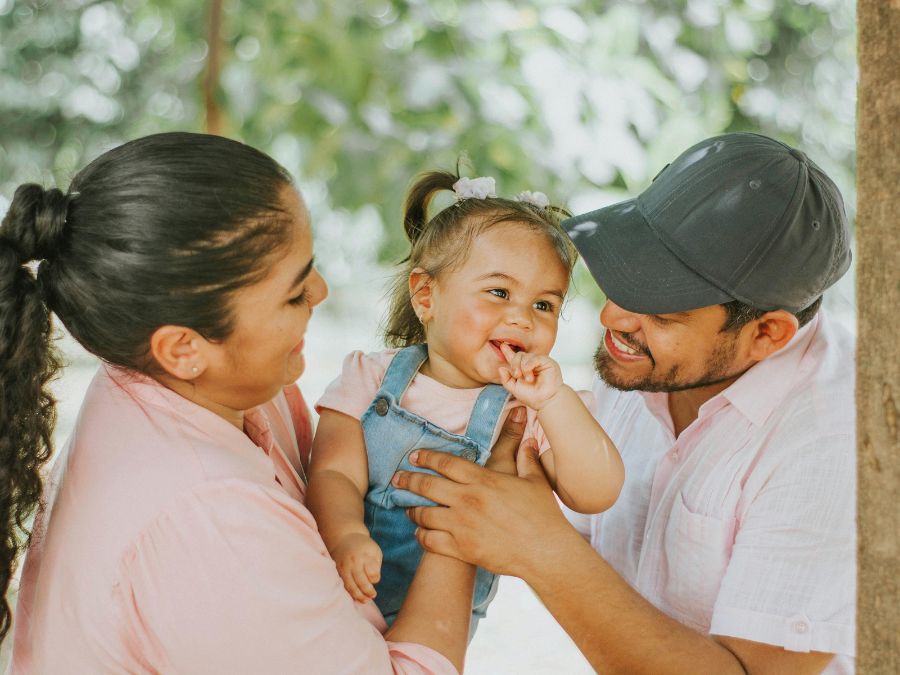
‘Universal Emotional Precautions’: post-pandemic opportunity in improving child mental health in Idaho
A few months after Covid-19 hit in the spring of 2020, childcare providers across the country re-opened with many instructions to keep their environments safe. They had to administer screening questions upon entry, disinfect surfaces, install hygiene stations, and make sure kids washed their hands seemingly nonstop. In Idaho, the protocols were put forth by Idaho Rebounds, an online government resource for re-opening, and promoted by IdahoSTARS, a project of the University of Idaho that works with child care providers to improve the quality of childcare.
Royale Lockhart, now lead quality childcare consultant for IdahoSTARS, was supporting her providers in this transition, when it struck her that there was a whole category of health precautions that were not standardized. Long before Covid-19 she was aware of the many traumas that kids faced in their own homes: death of a loved one, domestic violence, incarceration of a family member and more. The pandemic seemed to make it worse. Kids were returning to childcare with increased levels of hardship, including loss of loved ones to Covid-19. And where were the guidelines for how to address those traumas?
“I made up a phrase called ‘universal emotional precautions,’” says Lockhart. “I just believe that if we have universal precautions for dealing with body fluids, we need to have universal emotional precautions for dealing with emotions.”
That was three years before she came in contact with the HOPE framework and learned the term “positive childhood experiences,” around which the HOPE framework is centered. Positive childhood experiences (PCEs) — the flipside of Adverse Childhood Experiences (ACEs) — were something she always saw as critical for helping young people navigate trauma, but had never put a name to.
HOPE Champion partners with child care organization in personalizing the HOPE framework
Lockhart has long approached childcare with a philosophy similar to HOPE’s, but the framework gave her a concrete way to support her providers in practicing this kind of care. She learned about the Four Building Blocks of HOPE, which are also the key types of PCEs:
- Safe and supportive relationships
- Safe, stable, and equitable environments
- Opportunities for social and community engagement
- Opportunities for emotional growth
In 2024, Lockhart became a HOPE Champion, took the framework and ran with it. She’s now helping a client, a faith-based learning center, implement the HOPE framework in a way that works best for the children and families it serves. Because it is a Christian organization, Lockhart knows that relating the HOPE framework to the existing culture is essential to its success.
“I guided [the client] through finding biblical references that back up the whole framework,” she says. “[The client] was able to see how closely the HOPE framework aligns with her Christian faith.”
The ability to connect the HOPE framework to the particular culture of a client is one of her favorite things about the framework. Lockhart has a lot of experience with frameworks and has seen various programs and frameworks get “thrown out the window” by clients because they do not connect to the way those organizations already operate.
“My philosophy of education is a differentiated approach and that there is no one size fits all with education. So, that also really appealed to me about the HOPE framework…you can listen to the person requesting the training, or the childcare provider or you know the business and hear where they’re at and then help them see how help fits into what they do.”
Why PCEs matter
PCEs are not just for the kids who come in with known and reported traumatic experiences, says Lockhart. She believes that providers should assume all children need them.
“We just don’t know what every child or every family may have gone through. So we needed to approach every child with the same love and compassion as those children that we knew had trauma in their background.”
In the childcare setting, PCEs can be as simple as celebrating kids’ birthdays and inviting their parents to join, or helping kids make Halloween costumes and orchestrating a parade. Or they can be more involved: organizing a volunteer work day for parents so that they build relationships with each other and are empowered to connect with their communities at large.
PCEs can also come in the form of critical resources that kids might not get at home.
“Childcare also is a great place to provide that safe, equitable, healthy environment because they can provide a place that’s clean, where there are toys that are developmentally appropriate, provide nutritious food, things that the child may not be getting at home,” says Lockhart.
When Lockhart considers the challenges the children face when they don’t have stable home environments, or when they have mental or physical disabilities, she knows there’s a role that positive childcare environments can play in improving their wellbeing. But it pains her when providers are not equipped to support those kids most in need.
“Childcare providers…sometimes get afraid of, ‘What if I accept this child with this known trauma, or this disability or this issue? I’m gonna lose this staff because they don’t know how to deal with it.’” She says if providers feel they are not equipped, it can lead them to enact unintentional exclusionary policies.
She feels that the HOPE framework empowers providers with the tools needed to address the most challenging situations.
“That’s where I feel like the HOPE [framework] is so vital…because it is a step in equipping childcare providers to know how to support children and families.”
What does the HOPE framework look like in your work?
Do you have an amazing story to share on how you are using the HOPE framework in your work with children and families? Are you looking to start prompting positive childhood experiences? Reach out to us!


